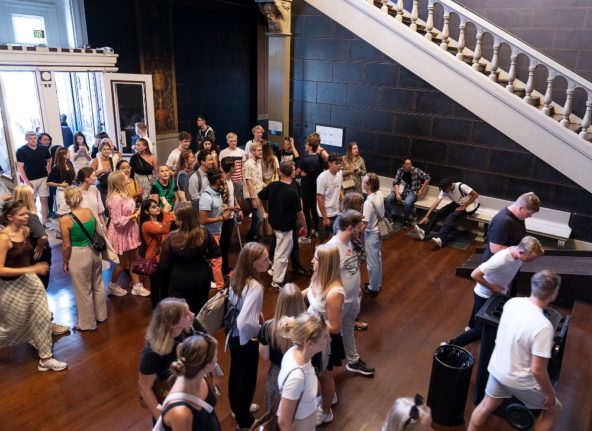A government proposal for a reform of university education programmes, specifically graduate or Master’s degrees was presented by Danish government ministers at a briefing on Thursday.
The number of places on English-language Master’s degree programmes could be expanded by the proposal, but many degrees will be shortened in length to a single year with a final assignment set during what would normally be the summer holiday.
Humanities and social sciences degrees are those expected to be the primary focus of the changes.
An aim of the reforms is to create “more and more flexible paths through university”, according to the government. It is also designed to encourage more people to choose vocational education.
The Danish national union for students has criticised the plan, as have mayors in the country’s largest cities. But business representatives have welcomed it.
READ ALSO: Denmark could offer places to thousands of additional international students
The national union for students, Danske Studerendes Fællesråd (DSF), rejected the government’s assertion that shorter degrees will make them more applicable at businesses following graduation.
“I think they will actually become less business-oriented. Where is the space for work placements or collaboration with companies for Master’s theses? I don’t think it’s going to work,” DSF chairperson Esben Salmonsen told news wire Ritzau.
In addition to the short Master’s programmes, the proposal also includes provisions for extended Master’s degrees of 2.5 to 3 years with “a high degree of specialisation”.
“We are concerned about the pressure and poor wellbeing that will result from having to compete with fellow students to be permitted to study a two-year Master’s programme,” Salmonsen said.
The national organisation for Danish universities expressed similar concerns relating to the options for gaining business-oriented skills through the shortened degrees.
“If the study programmes are shortened, we must uphold high academic standards and that will mean little time for project courses at businesses during the term of study,” the chairperson of organisation Danske Universiteter, Brian Bach Nielsen, said in a press statement.
DSF also said it saw some positive elements in the proposal, however.
“I think it’s positive that the lack of teaching hours on Master’s programmes is being taken seriously. And I think it’s positive that there’s a proper reform of Master’s that take place with companies [erhvervskandidater, ed.], because this is not used enough because it’s difficult for many people to be accepted onto,” Salmonsen said.
The mayors of all four of Denmark’s major cities meanwhile criticised the proposal to halve the length of many Master’s degrees.
“If we squeeze more into a one-year Master’s degree, we also risk making things harder for young people who are already under strain in the education system and we also risk creating problems for our businesses,” Copenhagen mayor Sophie Hæstorp Andersen said in comments to broadcaster DR.
The mayors of university cities Aarhus, Odense, and Aalborg also joined in the criticism, saying they doubted it would solve the labour shortage in municipalities and that is risked harming the standard of education.
All four mayors are Social Democrats, putting them at odds with their party colleagues in the coalition government over the issue.
Business organisations were generally positive over the plan but also expressed their own reservations.
The director of the Danish Chamber of Commerce (Dansk Erhverv), Brian Mikkelsen, told DR the proposal was “generally positive and constructive” while the Confederation of Danish Industry’s division director for education and industry, Mikkel Haarder said the government “deserves a lot of praise for the ambitions they have put forward”.
Degrees with “few hours, very little feedback and a lack of guidance, and where there maybe is high unemployment afterwards” have potential for “new ways of thinking”, Haarder said.
Both organisation leaders commented on the number of degrees that could be shortened, saying 50 percent was a “high number”.
“In business, we want people to be as well educated as possible. The 50 percent [of course length reductions] that are proposed seems to be a very high number and we would like it to be lower,” Mikkelsen said.
“Instead, focus should be on quality and education for what businesses need,” he said.
The interest organisation for small and medium sized businesses, SMV Danmark, was not similarly concerned about making MA programmes shorter.
“Not all work places need the level of specialisation that is placed in Master’s programmes today,” director Jesper Beinov told DR.
“You are certainly also well-educated if you have firstly taken a three-year Bachelor’s degree and then a Master’s, whether it’s two years or a year and three months,” he also said.



 Please whitelist us to continue reading.
Please whitelist us to continue reading.
Member comments